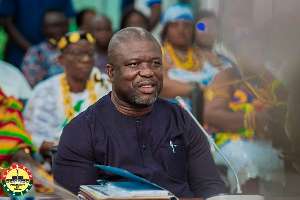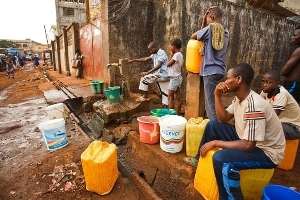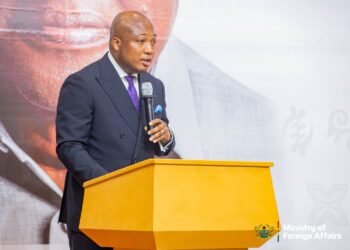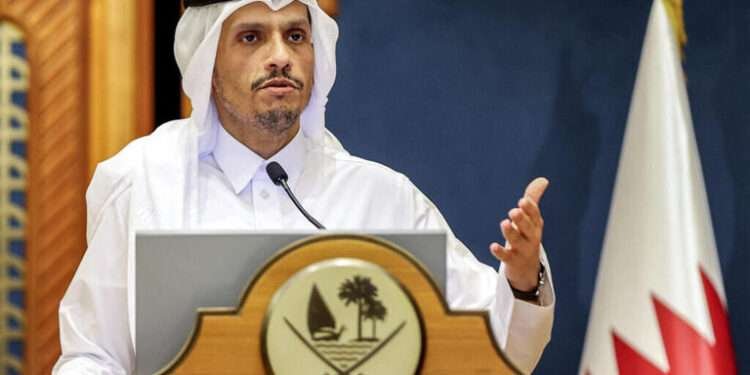Water scarcity is a growing challenge in Ghana, with many regions experiencing periodic shortages that affect various aspects of daily life. Water crisis is particularly severe in urban centers where population growth and infrastructure deficits have strained water supply systems.
Factors such as climate change, inadequate investment in water infrastructure, and poor maintenance of existing facilities have compounded the problem.
In the Volta Region, the regional capital, Ho, has been grappling with a severe water crisis. The Regional Minister for the Volta Region, Hon. James Gunu, has raised concerns about the dire implications of the crisis and outlined immediate and long-term solutions to address the situation.
Hon. James Gunu emphasized the widespread consequences of water shortages in the region, stressing that if the situation is not addressed, it will become uncontrollable. He noted;
“The scarcity of water in the regional capital is impacting several areas of our social life. It is actually affecting security, education, health, service delivery, religion, customs, tradition, and cultural heritage. In actual fact, we know that if nothing is done about this, it will reach a stage that we cannot control the situation.”
Hon. James Gunu, Regional Minister for Volta Region
The minister highlighted that access to clean and reliable water is not just a basic necessity but a fundamental component of national development and social stability. He referenced;
“We are also mindful of the fact that the United Nations Sustainable Development Goal 6 talks about ensuring availability and sustainable management of water and sanitation.”
Hon. James Gunu, Regional Minister for Volta Region
As part of efforts to address the crisis, Hon. Gunu embarked on a fact-finding mission to the Kpeve Headworks, which houses the region’s main water treatment plant. He was accompanied by a delegation from the Asogli State, including representatives of the Agbogbomefia Togbe Afede XIV, and top management officials from the Ghana Water Company Limited (GWCL).
During the visit, the minister received a detailed briefing on the challenges facing the water treatment plant. Hon. Gunu explained;
“The briefing that I got shows that this facility started operation since 1992, ’93 with three pumps. Along the line, all the pumps got spoiled. A new one was bought in 2016, and that is what has been operating since that time to date. About a month ago, it got spoiled again. They repaired it, fixed it, and it got burnt.”
Hon. James Gunu, Regional Minister for Volta Region
For the past 30 days, the regional capital has struggled with water supply, leaving many residents without access to clean water. The Ghana Water Company has been making efforts to restore supply, but technical difficulties have delayed the process.
Short-Term and Long-Term Solutions

To provide temporary relief, the Ghana Water Company has been working on repairing the faulty pump. Hon. Gunu shared a plan;
“The Ghana Water Company officials told me they are trying very hard to provide water by this weekend. That is to say, they want to repair this pump and fix it. When they did it earlier, it was not able to pump water uphill to the treatment plant. So, they went to one of their facilities to remove one pump to come and fix it, so that by this weekend, they can provide water to the regional capital.”
Hon. James Gunu, Regional Minister for Volta Region
Additionally, the GWCL has announced that two new pumps will be procured by March 2025, to resolve the issue permanently.
Despite these interventions, Hon. Gunu acknowledged that the current water treatment plant is insufficient to meet the growing demand of the regional capital. He revealed that the daily water demand in Ho and its surrounding areas is over 30,000 cubic meters, while the facility can only supply 11,000 cubic meters, creating a significant deficit.
This challenge aligns with the broader need for an expansion project, which has been captured in the government’s manifesto.
In the meantime, the regional administration, in collaboration with the Ghana Water Company, has taken steps to supply water to key institutions through water tankers. Hon. Gunu disclosed;
“The Ghana Water Company is to supply water to some institutions. So … For instance, the Ghana Prison Service, the 66 Artillery Regiment, and the Ho Teaching Hospital were provided with water through the use of water tankers.”
Hon. James Gunu, Regional Minister for Volta Region
This emergency intervention is crucial in ensuring that critical institutions, especially healthcare facilities and security agencies, continue to operate efficiently despite the crisis.
The ongoing water shortage in the Volta Region underscores the urgent need for infrastructural upgrades and sustainable water management strategies.
The government’s short-term intervention—repairing existing pumps and supplying water through tankers—provides temporary relief. However, the long-term solution lies in increasing the region’s water supply capacity through infrastructure expansion and improved maintenance.
Hon. James Gunu’s commitment to resolving the crisis aligns with the broader national goal of ensuring sustainable water access. However, it will require coordinated efforts from stakeholders, including the government, Ghana Water Company, traditional authorities, and development partners, to implement lasting solutions.
READ ALSO; Kanye West Declares Bianca as “Most Googled Person”


















